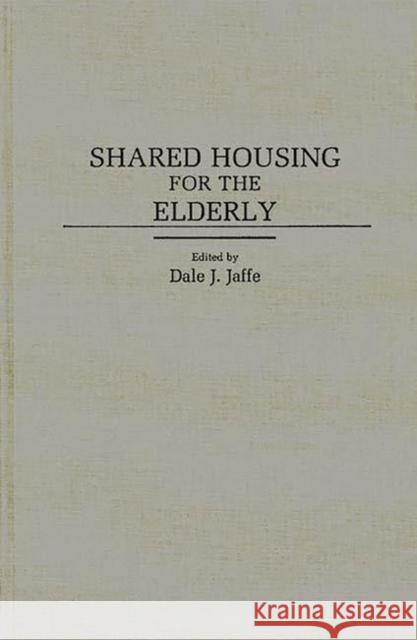Shared Housing for the Elderly » książka
Shared Housing for the Elderly
ISBN-13: 9780313262845 / Angielski / Twarda / 1989 / 214 str.
This book is the first collection of original essays on the topic of elderly shared housing. The approach is multidisciplinary and reflects a rare combination of applied and academic analyses. The focus is on agency-assisted shared housing, a form of shared housing in which a homesharing agency matches a homeprovider, usually an elderly person with room to spare in his or her home and often with needs for assistance, with a homeseeker, usually a younger adult who seeks an inexpensive living arrangement. With the increasing scarcity of moderate- and low-income housing in many regions of the nation and the increasing costs of formal community-based services for the elderly, such homesharing options are becoming increasingly attractive for old and young alike.
The first section of the book includes four introductory essays. The goals of this section are to provide a broad descriptive analysis of the history, growth, and current issues facing the shared housing movement, to consider both the urban and rural environments as contexts for shared housing programs, and to offer an overview of shared housing research. The second section contains three chapters which offer regionally specific perspectives on the development of shared housing programs. These include the states of Michigan, California, and the Canadian province of Ontario. Each chapter decribes the issues in service delivery system development within their particular geographic boundaries. The final section of the book contains six case studies of homesharing programs. They are located in Burlington, Vermont, Madison and Milwaukee, Wisconsin, Wichita, Kansas, and San Jose and Orange County, California. Most emphasize the organizational characteristics and dynamics of the programs, and some present qualitative and quantitative data on homesharing matches. A theme running through the analyses is the fact that community level variables influence the organizational form of the homesharing agency as well as the kinds of clients who are likely candidates for homesharing in particular communities.











